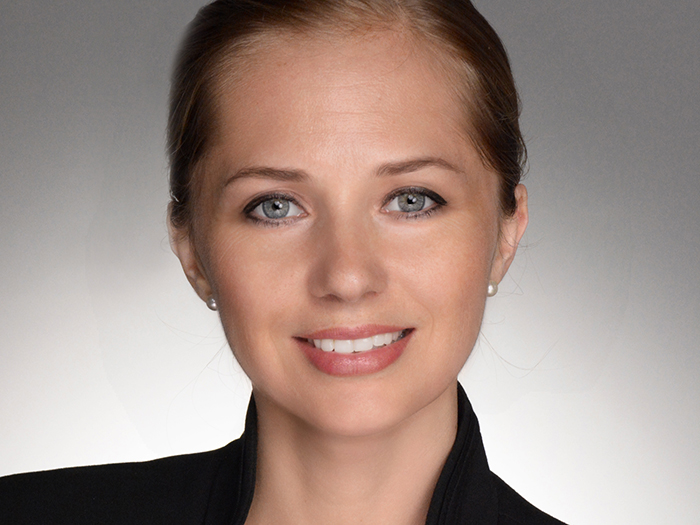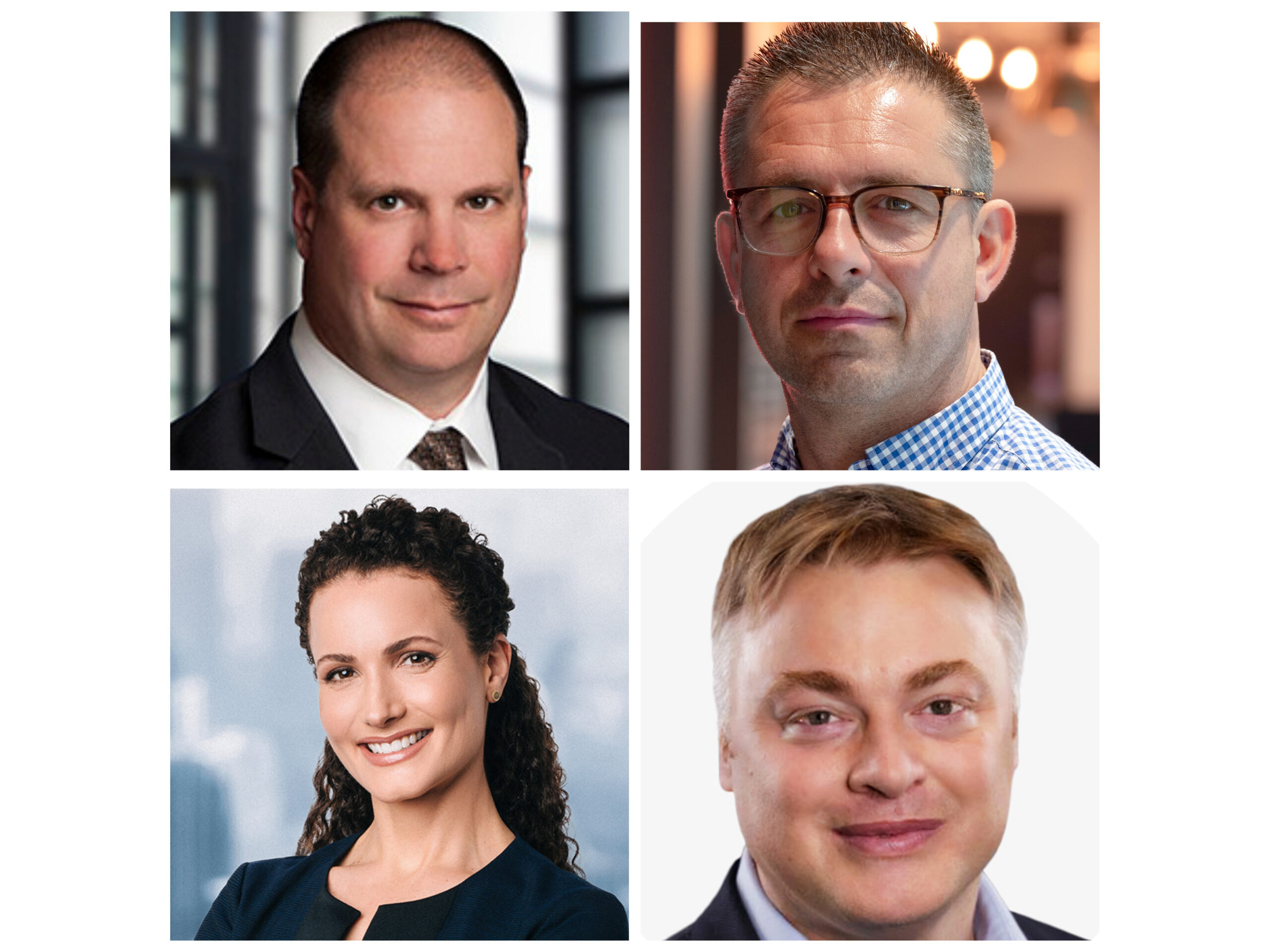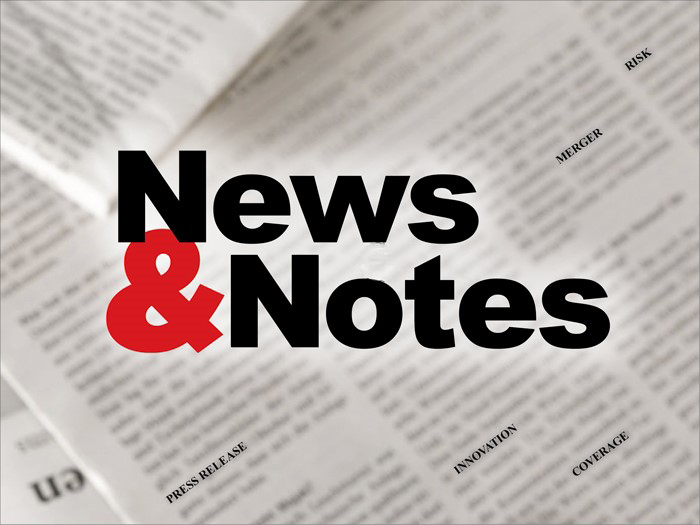14 Questions for Worldwide Broker Network CEO Olga Collins

In mid-October, Risk & Insurance® editor-in-chief Dan Reynolds got a chance to catch up with Olga Collins, the CEO of the Worldwide Broker Network, who was appointed to the position in April of 2021.
What follows is a transcript of that discussion, edited for length and clarity.
Risk & Insurance: As you look ahead after these first six or seven months, where do you find joy around the opportunities you see in front of you?
Olga Collins: I think the excitement level continues to rise. The more I’ve learned, the more excited I have become and a lot of it has to do with the fact that I have a lot of history with this organization.
When I was on the brokerage side for the last seven years, we were members of WBN with Beecher Carlson (owned by Brown & Brown). I built a tremendous amount of close relationships around the globe with the brokers as part of WBN. So, joining this side of the house just felt like a natural move.
Now, working towards our identified initiatives makes it exciting to bring the things we as brokers discussed during meetings or in certain committees and move them into reality.
R&I: What specific initiatives are you excited about or do you want to put into play?
OC: The list is very long – in a good way. We continue to evolve. We don’t like the status quo within WBN. I don’t think the status quo should be part of any industry, but specifically insurance.
A couple things that are on the horizon are creating a client advisory group. The service quality and the care that our brokers put into every client is really what differentiates us from the competition. So we already have a platform for our clients to be at our meetings, but this just makes it more of a formal approach.
The next phase is to creating true networking opportunities for our clients at our events to give us direct access to feedback – the raw, the good, the bad, and the indifferent. And that’s exactly how we can learn and grow.
R&I: Any other initiatives come to mind that you want to put some energy into?
OC: We just finished our rebrand and we’ll be launching that very shortly to the external world. We’re very excited about that. It’s something that we put a lot of passion into because we are an extension of over a hundred firms globally. So we need to make sure we can represent their services properly.
Just this week we launched the next phase of focus on our young professionals. We created a young professionals’ academy a couple of years ago where we have a true curriculum-driven program for brokers 35 and under from across the globe.
We have about 200 people as part of the program right now. Again, this involves various countries connecting on a regular basis to work on group project. I call it an unaccredited MBA of international insurance.
The next phase that we just launched this week is for the graduates of the program to be part of our board mentorship program, where they get one-on-one guidance from our global board members. We make sure they’re tutored by someone in a different region. So that way, our young professionals continue to learn about business in a very different setting to theirs.
R&I: Historically, there were pretty well-established training programs for young brokers and underwriters, and what we hear is that due to cost cutting and margin consciousness, over the last couple decades those training programs seem to have withered away. A, do you agree with that? And B, do you see this initiative we just talked about as a way to get back in that direction?
OC: Training programs are the last thing that should go, I think. But this program that we’ve created for our young professionals is not training in the traditional sense.
We’re not recapping an “Insurance 101” type of curriculum. This is a soft skills, leadership development focus, which includes one-on-one interviews with global leaders. We harness article writing and other thought leadership. It definitely goes beyond your traditional training setup.
I think that if you don’t invest in rising leaders, you have no future as a company. So that’s at the forefront of our investment. And so far, all of our members are very excited about this.
It’s important to add that our young professionals academy is actually run by a young professional. This is of course, with oversight and help from various leaders around the network, including our headquarters. But it’s so important to have ownership and that experience of feedback from peers, so we put a young professional in charge of the program.
R&I: That sounds great. So we talked about some opportunities and some initiatives, which all sound very interesting and on point. As you take the reins of this position, what do you see as your key challenges?
OC: I think the last couple of years have been challenging for a network like ours, when getting together in person in the same room has been impossible. We thrive in our relationships with each other and that translates across to our client’s experience.
But what I also found is that we got to know each other at a completely different level. Zoom calls that bring us into people’s homes, for example, and getting to know each other’s kids, who normally wouldn’t come to a network meeting.
When we connected with our members across the globe, all of a sudden the conversations went beyond and above. So even though it was a challenge at first, I think we took it and spun it in a very positive way and made it play to our advantage.
I think the challenge will be when we all gather together, such as the WBN Member Conference, which is planned for San Francisco in 2022, and somehow control this crowd of friends who are coming in from lockdowns. How do we focus them on training and thought leadership when we’re all busy trying to catch up?
R&I: You mentioned young professionals. Are you willing to talk about or open to talking about, when you look at your organizations, who some of your rising stars might be? Talents you really have your eye on?
OC: It’s so hard to pinpoint just a couple people or one person, because we are present across a hundred countries. I pick the folks that are running the young professionals’ academy and the program overall, and they rotate. So it’s not the same group of people, and this is by design. Every couple years, we have a rotation and some age out and don’t really like to be in that position, but I think all of our professionals who are involved in the program are rising stars and they are viewed as such internally by their firms.
We initially looked at this program as a talent retention tool. And we see that our program is being built into people’s career development, which is fantastic.
Risk management was not even on my radar until I realized there was a really good combination there of analytics with people relationships. And once I entered that world, there was no looking back.
There is a little bit of investment from the budgetary perspective, of course, but what you invest is undeniably beneficial to the individual and therefore the industry as a whole. Our competition doesn’t invest in young professionals in the way that we do.
R&I: You mentioned the academy as a talent retention aid. Are there other areas where you’ve got some talent retention and recruitment initiatives going?
OC: We continuously look at growth, even at headquarters level, and we’re looking to expand our team in 2022.
Covid was such a terrifying and negative event globally, it made businesses think about finding the right talent, not just who’s local. As we expand our team, we now have access to every geography in the world, and can make sure we find the right fit for our culture and the needs of the business. So yes, we’re looking to expand from a team that’s already global to being even more global going forward. It’s an exciting time for talent acquisition – I think now literally sky is the limit.
R&I: Let’s talk about technology then. So much has changed: the work, the workforce is changing, how we work has changed. How do you see, or do you see places where the application of technology is making a difference or gaining traction or aiding current issues and challenges?
OC: I think technology is on everybody’s mind nowadays, especially with insurtech talk. There are some serious buzzwords around the industry that everybody’s either excited about or scared of, but technology is hugely important for us to stay connected.
We’re an independent group of members, so everybody’s got a different name and everybody’s got their own system. To bring us all together, we have to have a strong platform. And what’s important is that we are also combining property and casualty and employee benefits. So having a platform that connects us and also improves the client’s experience is really what we’re after.
Truthfully, there are opportunities that we’re looking at to go beyond what we have right now – we’ve grown so quickly and our clients continue to challenge us with more sophisticated questions. So there are some items that we’re looking to invest into that will take our offering to the next level.
R&I: We were thinking about asking you about key risks and what really caught my eye was the employee benefits piece of your work. As we know, we’re seeing a rapidly changing dynamic between employer and employee. How do you view this change?
OC: It’s one of the top priorities for most HR managers or risk managers. They’re starting to work together too, as traditional insurance and people risks are starting to overlap with one another.
That’s one of the reasons why we’re blurring the lines between property and casualty and employee benefits within the WBN world.
Mental health has become one of the top topics to explore in insurance. But because we work across a hundred countries, how mental health is viewed is very different. So the discussions we’re having at the global level is about educating our HR managers of large organizations. One specific country may not view this as a disability or as an additional need. So there’s a lot more growth to be done, and it’s a topic we discuss on a regular basis with all of our members.
R&I: What other risks or emerging risks do you have your eye on?
OC: Coming from a pretty sophisticated brokerage shop, it’s important to note that our clients are asking for us to be more in a consulting role. Overall, we need to be the extension of risk management or whoever has the responsibility over insurance, and provide creativity right from the get go.
We’re an independent group of members, so everybody’s got a different name and everybody’s got their own system. To bring us all together, we have to have a strong platform. And what’s important is that we are also combining property and casualty and employee benefits. So having a platform that connects us and also improves the client’s experience is really what we’re after.
There are some risks, like climate change for example, that someday may be uninsurable. So how do we prepare our clients for that phenomenon?
Our conversations at the network level are always: “what can we stay ahead of?”. We also stay very close to our carriers – we call them our sponsors. We all know that unless we pull together and recognize climate risk as a topic to tackle holistically, nothing’s going to change. So we’re trying to group ourselves into a strong movement for climate change solutions.
R&I: Thanks for that. We note Olga that you began your career at UPS or part of your career was at UPS and you became a risk manager there. I was really curious about that move. And so if you don’t mind, could you tell us how you got into risk management?
OC: I fell into it. I know that’s unoriginal. I trained to be a finance professional and really liked marketing. When I started with UPS, I moved into international audit and international compliance. I was interested in anything involving an international focus that the firm could provide opportunities with.
Risk management was not even on my radar until I realized there was a really good combination there of analytics with people relationships. And once I entered that world, there was no looking back.
UPS, one of the most global companies out there, of course gave me that platform of feeding my international appetite. And I worked with many brokers as you can imagine, as UPS took up very large programs. There was a very sophisticated risk management platform there.
Once I made some contact within the brokerage community, I started to see that as the next move – I got very excited working with various types of risk management strategies and different brands.
So I moved over to Beecher Carlson to create their international department. And even though they had international business before then, our goal was to have a very structured approach to and create better relationships. I got attached to WBN after doing a very thorough vetting process of various independent networks. WBN was at the top of the list. I created that relationship about seven years ago, became part of the board, attached to the young professional’s team. And here we are.
I was born and raised in Poland. So I’ve always had that international connection having family across borders. My parents knew that the future was outside of the borders of Poland, so this goes back quite a few decades.
R&I: You knew there was a larger world out there that you wanted to be a part of?
OC: We at the WBN talk about cultural intelligence all the time, and that’s something that is so important for a community comprised of so many multinational leaders. It’s really exciting to see that we can prosper in that environment.
R&I: Are there leaders of carrier organizations or brokerage organizations that really impress you?
OC: I’m not going to mention names because I will forget a few and then someone will get mad at me. But I’d like to mention a couple of characteristics that really drive me towards people. Those leaders that put trust and faith in their teams, and create that culture of care where people feel safe to share opinions and ideas.
I think you need to have an open environment. I also like leaders that don’t shy away from change. When they look at an obstacle, they see an opportunity. So those are the people I think that have a future. And my favorite saying is “I want to be the leader I would follow.”
R&I: Is there anything that you were thinking about that you wanted to express that we didn’t cover?
OC: Well, I think leadership overall is a great topic, particularly when we talk about young professionals. I just wish we went further down the age group because we teach leadership all the way from birth up.
Being a working mom is so important to me. Being that example for my kids to see what’s possible and how to get around the impossible, that’s what’s important. So bringing kids into your everyday life, or everyday work life, which COVID allowed us to do, I’m very appreciative of. &










